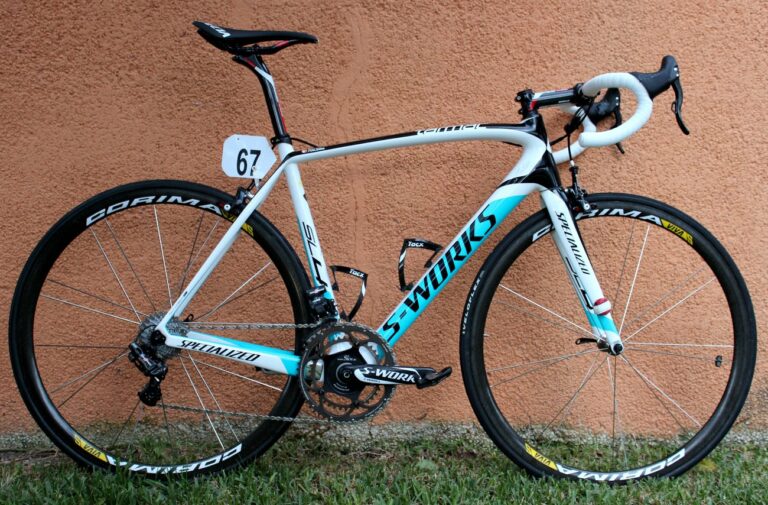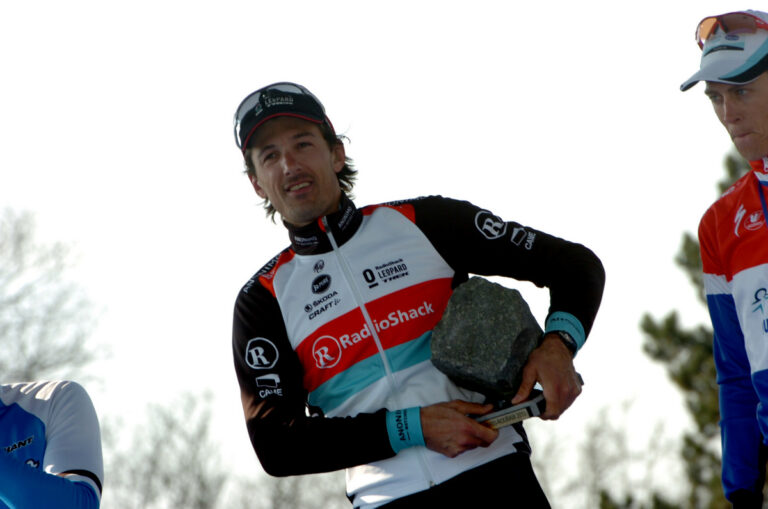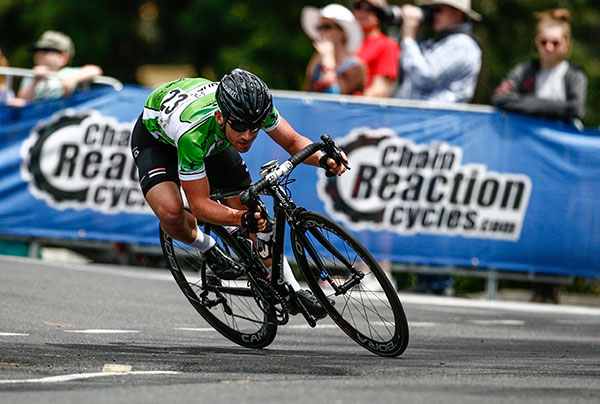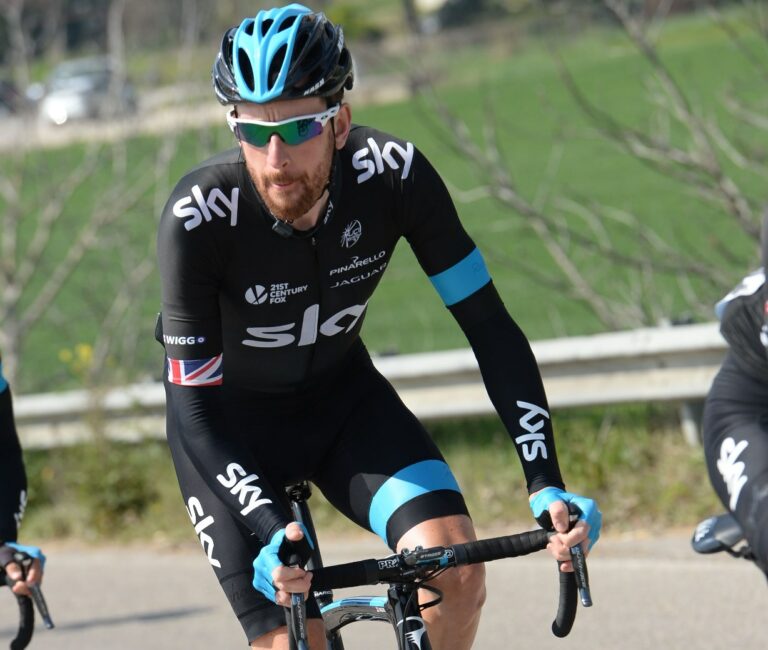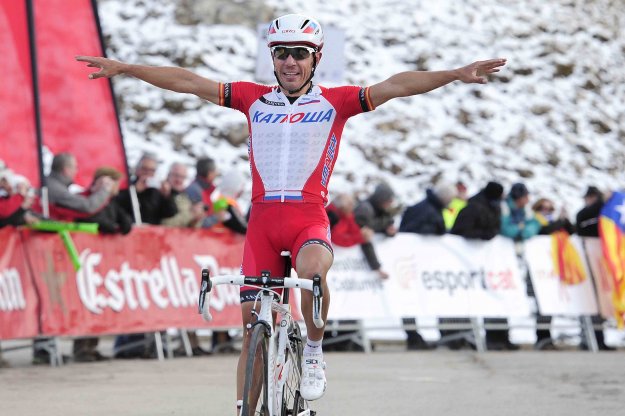“They’re chasing you down, Scott,” Roger Hammond calls through the window of the Madison Genesis team car as one of Britain’s brightest young talents soars to the summit of one of Mallorca’s seemingly endless supply of mountain roads. “There’s four of them, doing through and off.”
Hammond is joking (anyone who subscribes to the notion that professional cycling is an unremittingly serious business has never been to a training camp), but if Scott Davies is perturbed, he offers no further indication than to press harder on the pedals. The apparent ease with which he accelerates is not entirely unexpected in a rider who last year won the junior Tour of Wales (see also Hammond, Wegelius, Van Summeren, Martin, Dowsett) and finished seventh in the junior world road race championships, but is impressive none-the-less.
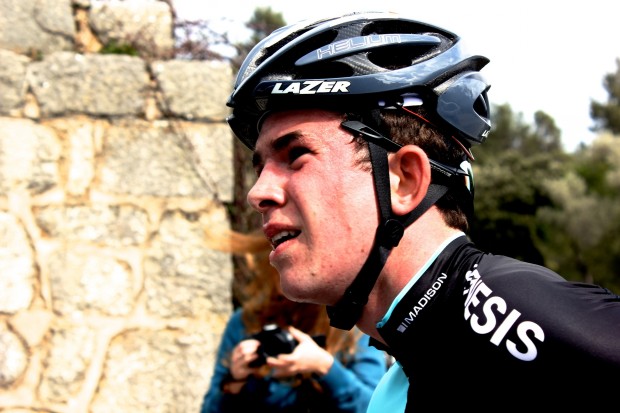
Here’s the thing: Davies’ increased effort is discernible only from his increased speed. His position, pedal stroke, what might be described as his body language on the bike and what seasoned cycling observers recognise as ‘form’, remains unaltered. While sprinters are routinely described as explosive, and the men of the cobbles as ‘hard’, graceful is the adjective that best describes riders who excel in the mountains. Davies, at 18, has grace in spades. Just don’t expect him to tell you so. Unfailingly polite and modest to a fault, he rejects any suggestion that he is gifted. “I wouldn’t describe myself as the most naturally talented guy,” he says. “I’ve put a lot of work in.”
I wouldn’t describe myself as the most naturally talented guy. I’ve put a lot of work in – Scott Davies
Hard work is a phrase that recurs throughout our conversation, whether Davies is describing balancing A-level studies with a burgeoning career as a bike rider, or a more recent 10-week period on the boards, riding the track as an imperative to improving on the road. The adage that youth is wasted on the young is unlikely to apply to Davies, a meticulous individual able to detect a post-crash shift of 1mm in his cleat position, and still uncertain if this is a useful trait or not.
Florence, Milton Keynes, Melborne, and Mallorca
Last year’s world road race championships represents the high point of Davies’ career to date, a highly impressive seventh place in the junior men’s race and the salvation of Team GB’s hopes after Tao Geoghan Hart suffered the heartbreak of a broken chain on the Via Salviati climb. Davies remembers the worlds as a “whirlwind experience”, from the “surreal” moment of selection to “disbelief” and “immense happiness” at his result.
Tellingly, however, he reveals that among his immediate reactions was the thought, “Where do I go from here? How do I build on this?”. He is also determined to prove that his result was no fluke and not to get “bogged down” in the success of one race. “I’ve been told that as of the day you get that result, it means nothing,” he says. “That’s the way I’m looking at it.”
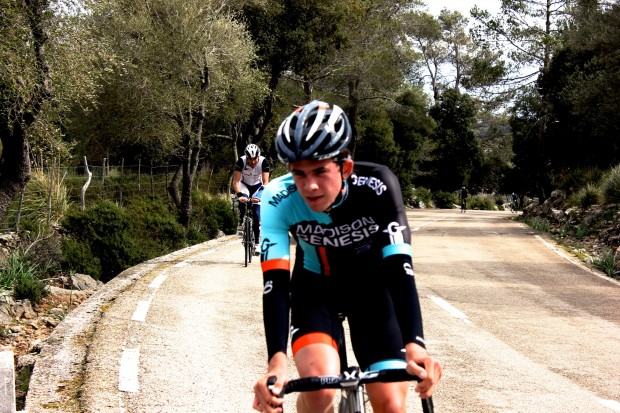
Davies’ performance at the worlds would have placed him on the radar of many professional teams, but Hammond had made an offer from Madison Genesis before the rider travelled to Florence with Team GB. “I liked the way we discussed things,” Davies recalls of his pre-worlds conversation with his new team manager. “I went to the worlds with that at the back of my mind, but he’d said I could give him an answer afterwards, which really meant a lot to me: the fact that he didn’t want to pressure me into a decision. I think that says a lot in itself. The worlds came and went. It seemed the right thing to do.”
I’ve still got a lot of work to do on my climbing, but the base is there. I think it’s the climbing where I can really make my mark – Scott Davies
Bolstering his experience of senior racing is Davies’ biggest goal for 2014. He has recently finished the SunTour, riding for Great Britain against WorldTour teams over a prologue and four stages in the ferocious heat of south Australia, an experience he describes as a steep learning curve. “The main thing is experience,” Davies says of his ambitions for 2014. “I don’t want to bog myself down with, ‘I need a top 10 in this, I need a top five in that’. It doesn’t always work out to be the case, does it? I think if I can finish the season and say I’m a better bike rider now than I was at the start then it’s been a successful year.”
Welsh dragons roar
Davies’ affair with cycling began as an 11-year-old. His father’s sound judgment in asking the second of this three sons to reconsider a request for a Raleigh Chopper resulted in the purchase of a road bike. The rest, as they say, is history. Eighteen months riding with his father was followed by membership of local club, Towy Riders, and a burgeoning friendship with neighbour and former junior prospect, Anthony Jones. It says much about Davies’ grounded approach that he attributes the greatest influence to local sources, despite being a member of perhaps the first generation of British riders to see the nation’s cycling stars routinely celebrated in the mainstream media.
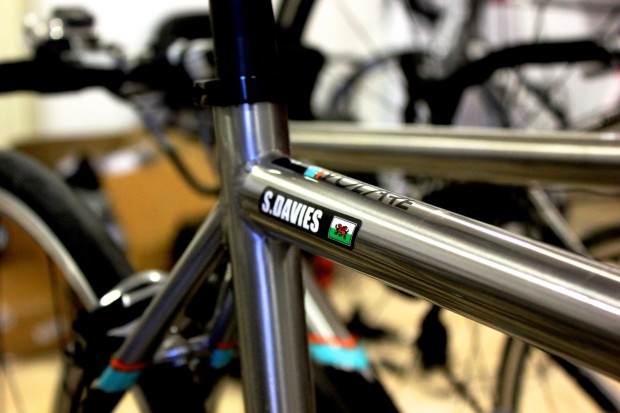
He is also the latest rider to add to a growing sense that we are living through a golden generation of Welsh cycling talent. With Geraint Thomas and Luke Rowe established in the WorldTour, Becky James a double world champion, and Elinor Barker a fully-fledged member of Great Britain’s all-conquering women’s team pursuit squad, riders like Davies and Owain Doull might be described as a second wave, despite the youth of their immediate predecessors.
Even the flattest road I can think of in west Wales is pretty lumpy by most people’s standards, but that’s a good thing in the long-term, I think. It makes you a bit harder – Scott Davies
The success of riders like Thomas and Rowe, cyclists who graduated from Welsh programmes to British Cycling, and from there to Team Sky makes the WorldTour dream seem possible, Davies concedes, and perhaps more realistic, but he is under no illusions about the hard work demanded by such an alluring career path. “It’s how much you want it,” he says. Davies credits his home federation’s focus on placing riders in British Cycling programmes and coaches like Darren Tudor, Matt Cosgrove, and Michael Heaven, for the recent success of Welsh riders.
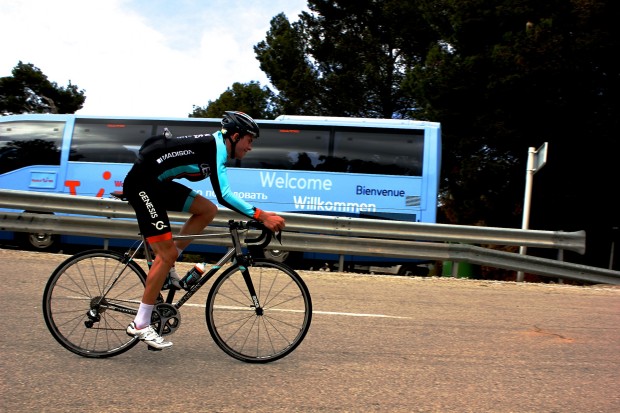
Cycling is still a minority sport in west Wales, although growing fast. Davies was, in sporting terms, the odd one out at school. “The weird one who shaved his legs,” he laughs. The area lacks facilities for the aspiring cyclist – Davies believes the outdoor, concrete velodrome in Carmarthen is the oldest in Europe – but it does not lack the roads. There is little doubt that he relishes the roads of home, despite his international experience. Even those of east Wales disappointed him. “Hard terrain” is the phrase he plumps for to describe his training loops. “Even the flattest road I can think of in west Wales is pretty lumpy by most people’s standards, but that’s a good thing in the long-term, I think,” he says. “It makes you a bit harder.”
On track for the road to success
Davies spent last year on British Cycling’s Olympic Development Programme, which demanded time on the track. He rode the team pursuit, and has supplemented his experiences with rounds of the Revolution Series in which he has experienced the more chaotic environments of scratch and points races. He has crashed “a few more times than I would have wanted to”, even in the two-man effort of a madison kilo, but he believes that mistakes made on the track will not be repeated on the road.
I don’t want to bog myself down with, ‘I need a top 10 in this, I need a top five in that’. If I can finish the season and say I’m a better bike rider now than I was at the start, then it’s been a successful year – Scott Davies
More significantly, the track has allowed Davies to hone his technical skills, from the basic requirements of riding on a wheel to the more subtle achievement of a liquid pedal stroke. The latter he attributes to time spent behind the derny bike. “Unless you’ve got that perfect spin, it’s impossible to do that at 70kph and still hang on.”
It seems unfair to ask Davies, fresh from the junior ranks, what style of rider he thinks he will become, and his answer is tempered with phrases like “for the time being” and “I know it can all change”, but he believes he is more likely to challenge for the GC in hillier races than to contest bunch sprints on pan flat parcours. “I’ve still got a lot of work to do on my climbing, but the base is there,” he says. “I haven’t got that top end speed, I haven’t got the sprint. I think it’s the climbing where I can really make my mark.” Anyone who has watched him ride the climbs of Mallorca is unlikely to disagree.

